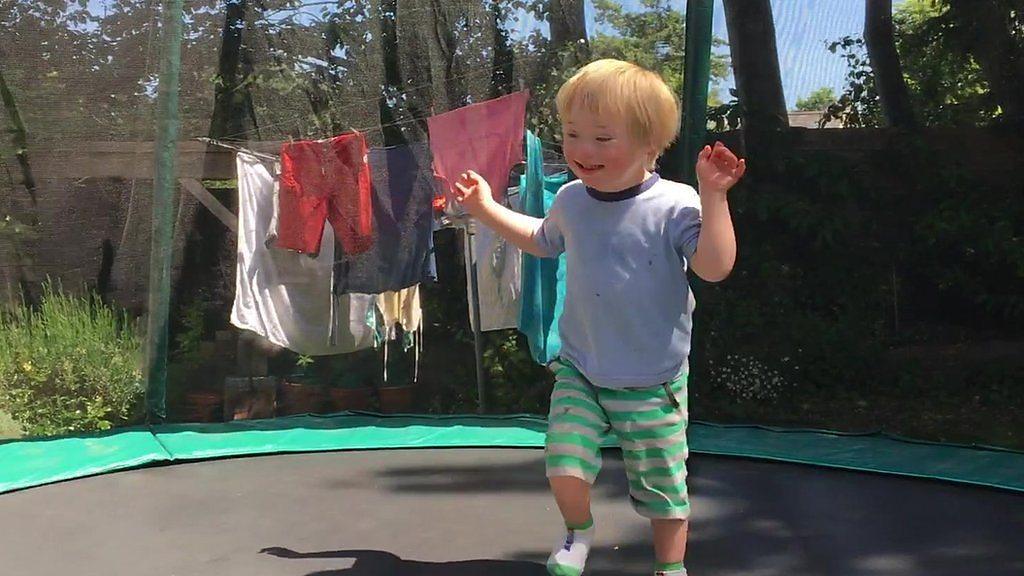Covid: People with learning disabilities 'left behind' by needle vaccine
- Published
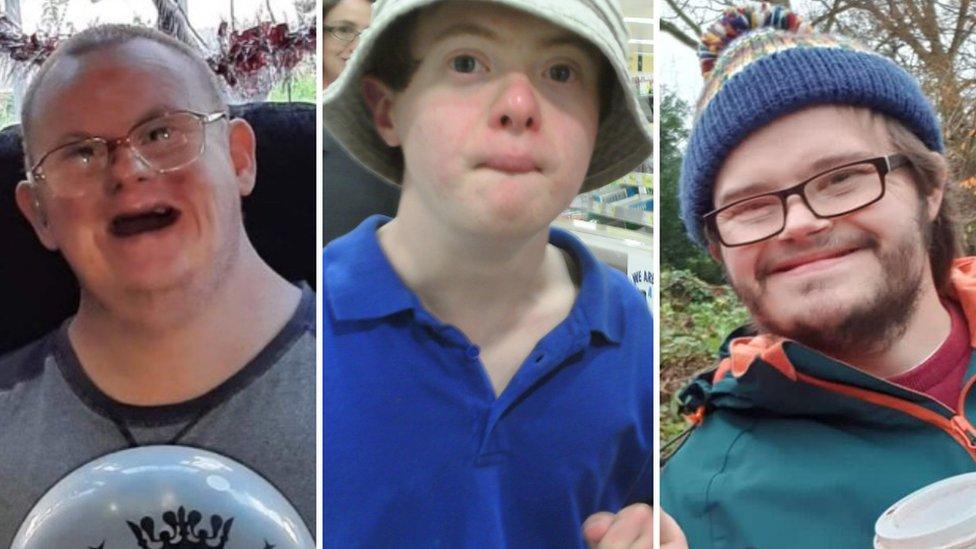
Receiving the vaccine via injection is not possible for everybody, parents say
People with learning disabilities have been "left behind" while the Covid-19 vaccine can only be delivered by injection, their families say.
One parent said their son, who is clinically extremely vulnerable, would "flip completely" if approached by someone with a needle.
A government-funded trial for an inhaled vaccine is not expected to be completed until August.
Families say it means loved ones remain at high-risk of dying from Covid.
People with learning disabilities are up to six times more likely to die from Covid-19, a report from Public Health England (PHE) shows., external
Everyone on the GP learning disability register will be invited for vaccination as part of priority group six, PHE confirmed.
But some parents say the jab remains an unviable option for their children.

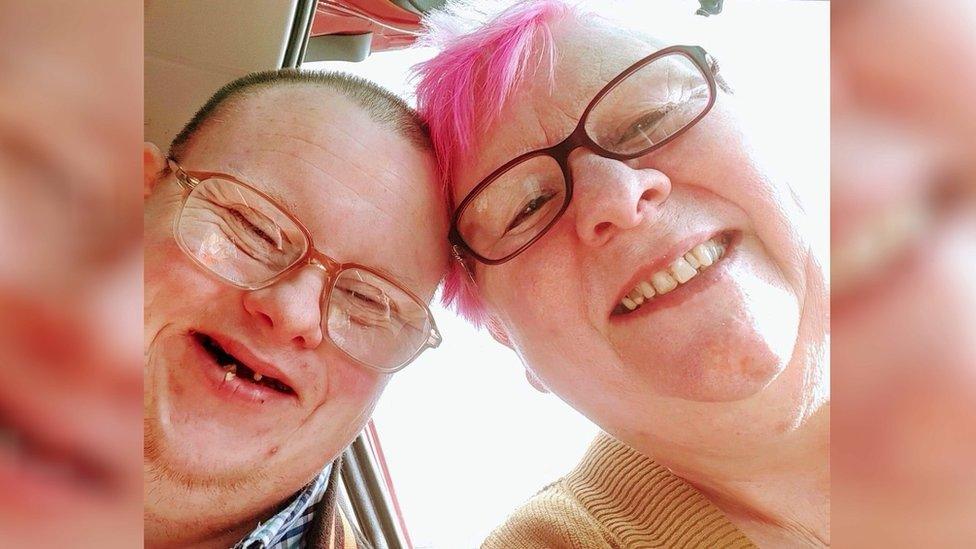
Sue Keegan said her son's fear of needles "had always been there"
Sue Keegan, from Chudleigh Knighton in Devon, is a single carer for her 30-year-old son Sam.
He has Down's Syndrome and autism, and an extreme phobia of hospitals, doctors, and needles.
While Sam was able to receive his vaccines as a baby, his sensory needs have stopped him from doing so as an adult.
"He can't cope with people touching him," said Ms Keegan.
"He's a very strong young man, and he will attack. He would just flip completely."
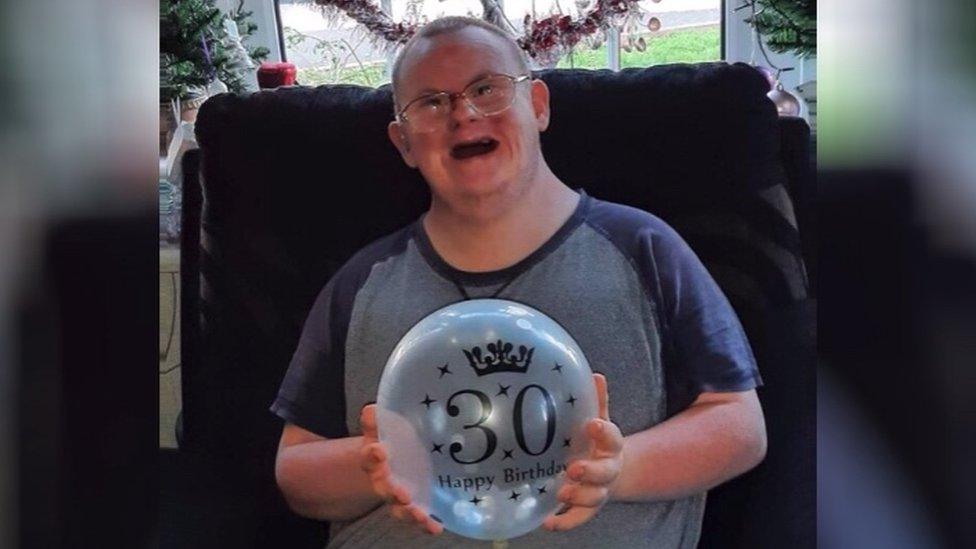
Ms Keegan said the upcoming easing of lockdown restrictions had forced her stress levels "through the roof"
Ms Keegan said it meant the Covid vaccine, in its current format, was "totally" out of the question for her son.
"The only way I can protect him is if we don't go anywhere," she said.

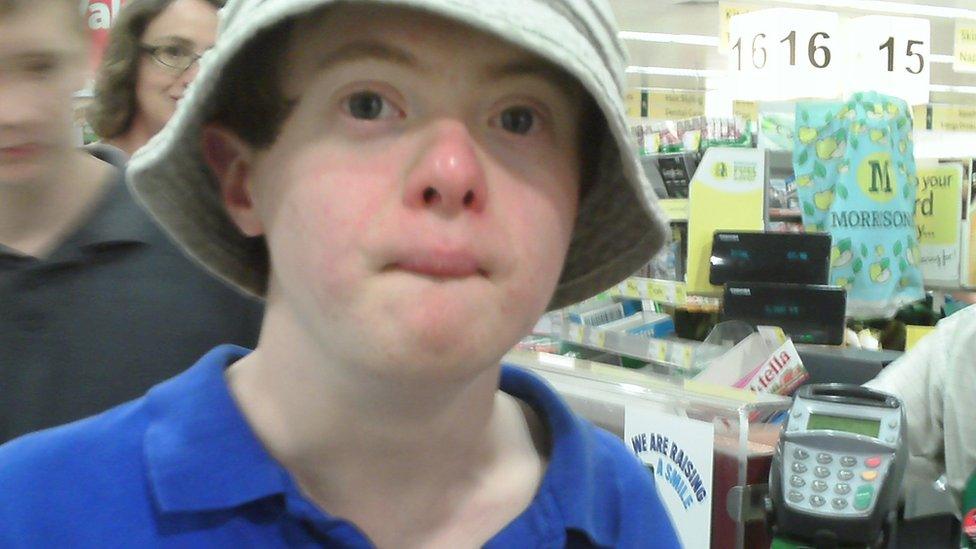
Ben, from Torbay in Devon, "might never get vaccinated", his mum Clare said
Twenty-two-year-old Ben, who has Down's syndrome and autism, has been shielding with his mother, Clare in Torbay, Devon since March 2020.
"In the last year, I've probably left the house no more than 10 times," Clare said.
While the vaccine represented a glimmer of hope for many people, it was less straightforward for Ben.
"He's very anxious as part of his condition," Clare said.
"He doesn't totally understand what injections are - for him it would be someone coming towards him with something that looks as though it will hurt. It's not safe."
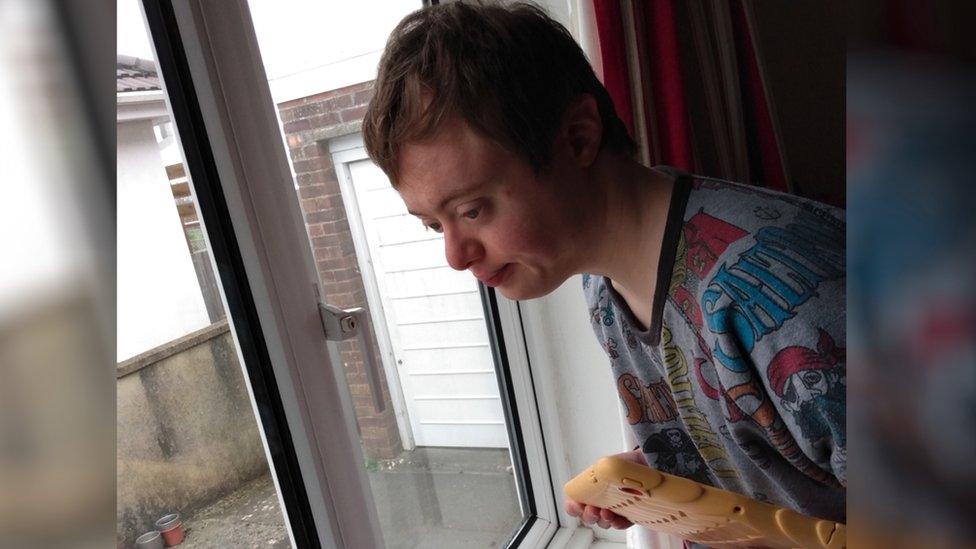
Ben wouldn't let anyone get close enough to administer the Covid jab safely, Clare said
While Ben cannot be given the vaccine, Clare and her family will continue to shield.
"I feel very much, as always, that we get left behind in all of this sort of stuff," she said.
"Going forward, our life can only get back to what it was through the development of a nasal vaccine. And there's going to be lots of people in the same position.
"He might never get vaccinated, but there's a chink of hope that he might."

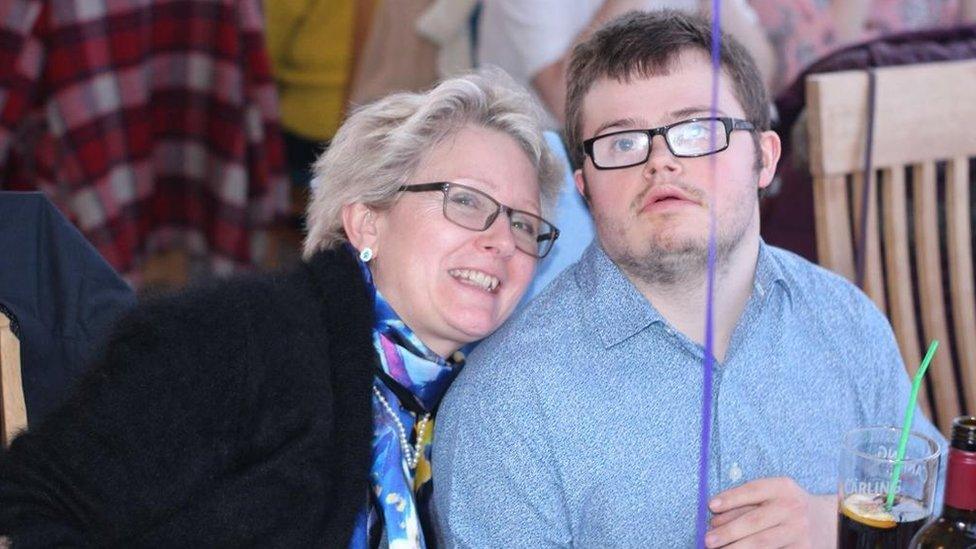
Sue Fear opted to give her 25-year-old son a small dose of Diazepam, as advised by a specialist GP, to ensure he could have the vaccine.
Ms Fear, a single mother from Torbay in Devon, said she had "exhausted" all other options to ensure Charlie, who has Down's syndrome and autism, could be protected.
"It's a question of trying to weigh up whether the person gets Covid, and dies, or they have this vaccination under extreme circumstances.
"I don't feel comfortable with that, but that's what was offered to me."
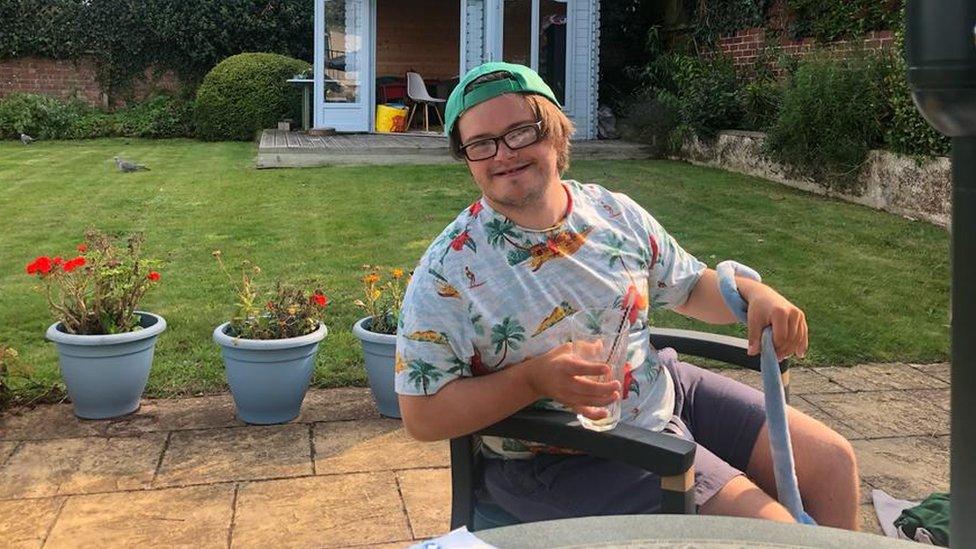
Charlie was given the first dose of the Covid jab at a mass vaccination centre
Ms Fear said she remained nervous about giving Charlie the anti-anxiety medicine for his second dose.
"Even now talking about it my heart rate is going up - the stress levels for parents are really high."
Ms Fear said it was a relief to know her son was vaccinated but an alternative format "would really help a lot of people".
"Even if there was a slight possibility of a liquid vaccination, that would be amazing," she said.

Dan Scorer, head of policy at the learning disability charity Mencap, said a needle injection was a "major barrier" for some people with a learning disability.
He said while many barriers could be resolved by making reasonable adjustments at vaccination centres: "The development of a nasal vaccine is also a crucial step forwards in battling the pandemic, widening access to the vaccine, and keeping a group of people who are highly at risk safe."
A Department of Health and Social Care spokesman said: "We know this is a worrying period for people across the country, and everyone using our health and care system deserves the best quality of care.
"The Department for Health and Social Care is supporting an Imperial College London trial to investigate inhaled Covid-19 vaccines which is due to report in August this year.
"As we turn the tables on this virus it remains vital that people who are clinically extremely vulnerable continue to closely follow the government advice on reducing their risk of infection."

Follow BBC News South West on Twitter, external, Facebook, external and Instagram, external. Send your story ideas to spotlight@bbc.co.uk, external.
- Published13 November 2020
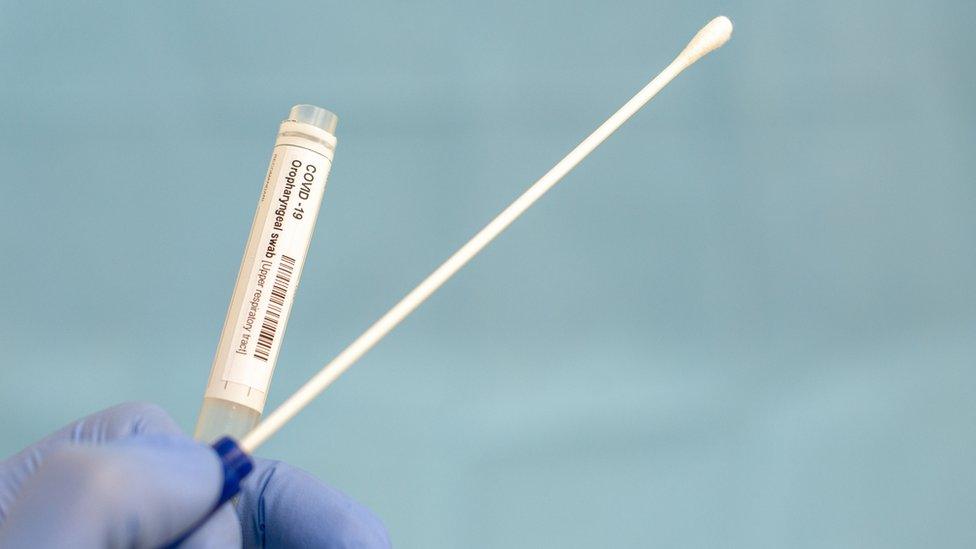
- Published7 December 2020
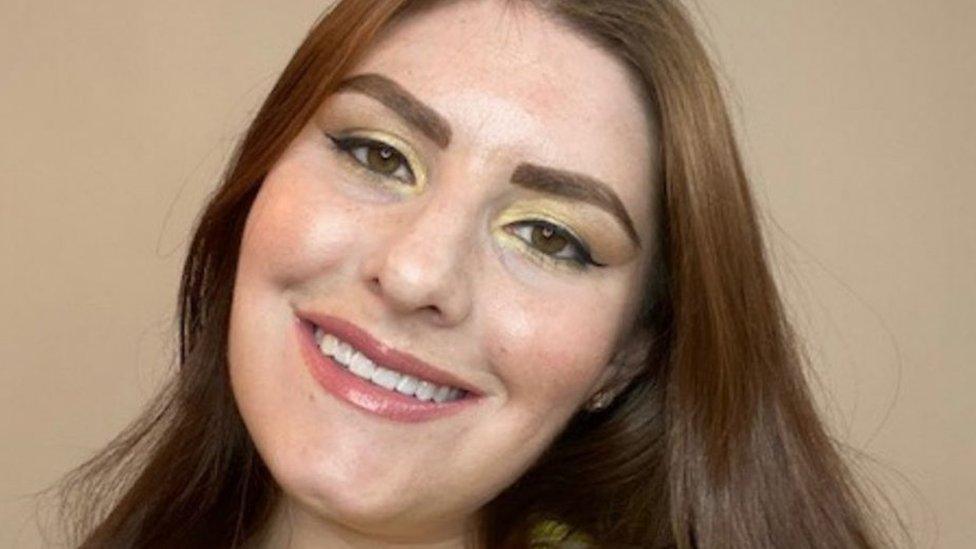
- Published3 June 2020
